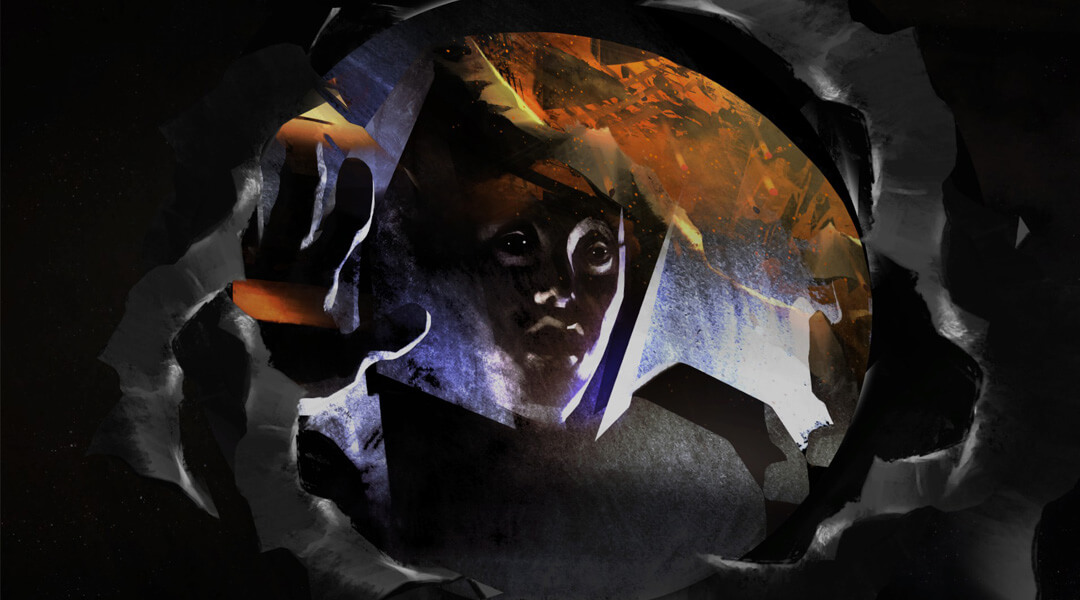
Tharsis Review
By John Jacques 12 January 2016
Tharsis is a turn-based strategy game where players roll dice to help a surviving squad of four astronauts as they try and repair a highly damaged spaceship. The crew is rapidly approaching Mars, and a mysterious signal provides an eerie backstory as players approach the planet. If the player can survive ten turns, they’ll get to see one of the game’s endings, but it will quickly become apparent how much of a challenge just surviving to see the end of Tharsis truly is.
The game comes courtesy of Choice Provisions, who certainly have experience with investing in success: they’re the studio that made Bit.Trip, one of the most successful indie games of all time. We’re no strangers to hard-to-survive space games, but even by our standards, Tharsis will bring even the most robust players to their knees as they learn the ropes.. The game follows the disastrous voyage of the fictional ship Iktomi, where meteors have damaged the ship to the point where the vessel is often only one in-game turn away from imploding.
As problems arise on different sections of the ship, crew members must roll their hard-earned dice to try and stem the flow of the figurative (and sometimes literal) fire. For every turn a crew member takes an action, however, they lose one of their dice for the next turn. So someone who had a turn with 4 dice will only have 3 to use the next turn, and so on. These can be replenished by rolling doubles or more in one of the ship’s specialized rooms or by acquiring a food item before the start of a new turn, and players will soon find that crew members with two or less dice are unlikely to help save the ship from destruction.

This isn’t helped by the fact that some disasters put modifiers in play when crew members attempt to roll dice to fix them. For instance, a fire in the medical bay might have things called void, statis, or injury modifiers. If it has 6 as a void and a player rolls that die, it simply disappears and can’t be used to count against the total damage that must be fixed to stop the fire. Similarly, statis means that players can’t re-roll that die if they hit the same number, and injury means the crew member will lose health if they roll that number.
Multiple injury modifiers stack as well, meaning sometimes players will even find relatively healthy crew members alive one moment and dead the next. Players can protect themselves by earning assists, which block the modifiers from effecting the roll, but these get used up very quickly. Players can also dump some of their dice into ‘Research Projects’ that provide boosts like assists, health, repair, and health. A well-timed research project can often be the difference between life and death.
Crew members on the Iktomi have two important stats: the aforementioned health, and stress. The first stat has obvious repercussions should it be depleted: the crew member dies, and players are forced to try and keep the ship together with even less people (good luck!). The second stat, stress, impacts what happens after a turn ends. Surviving crew members present the player with a few mid-turn options: repair the ship at the cost of more stress, get some food at the cost of hurting someone, and other balanced sacrifices. The more stress a crew member has, the more awful their suggestion becomes, potentially forcing a player to make moves they wouldn’t ever want to make.

Then cannibalism comes into play. The game starts off with a dead crew member on board, and after a few turns players have the option to deprive certain crew members of their humanity and get them to eat pieces of the zero-gravity carcass. These chunks of meat will restore dice for the crew members and can truly be a saving grace, but resorting to cannibalism drastically increases the stress on the hungry crew member, and their virtual avatars certainly reflect that they’re not exactly sane anymore. The dice they roll from then on are covered in blood as a reminder of their actions, and the player – should they succeed in reaching Mars – will lose some points for having to resort to it.
It’s evident that Choice Provisions didn’t have the largest budget for Tharsis, and it shows the most in the bland and generic graphics put into each crew member’s face. It makes them all look similar, and we felt like more unique-looking crew members would have helped in terms of presentation. That said, the ship Iktomi actually has plenty of little details put into it, and the haunting soundtrack does the game justice. All-in-all, a turn-based dice game doesn’t ultimately need to rely on impressive graphics, and Tharsis gets along well without them.

Tharsis is a game for those who love tabletop gaming and a challenging experience. At its heart Tharsis is as unforgiving as it is entertaining, but it offers very little variety in terms of the overall game. There’s one ship and a limited selection of crew members to unlock, and players will bear witness to the same cutscenes game after game, which after the first playthrough are likely going to be skipped forever. Tharsis has a surprisingly addictive quality, and tabletop fans who want to roll the dice on it should find it well-worth the launching sale price of $9 – but be warned, a voyage on the Iktomi isn’t for the faint of heart.
Tharsis is currently available on PC, Mac, and PS4. Game Rant was provided a PC code for this review.
